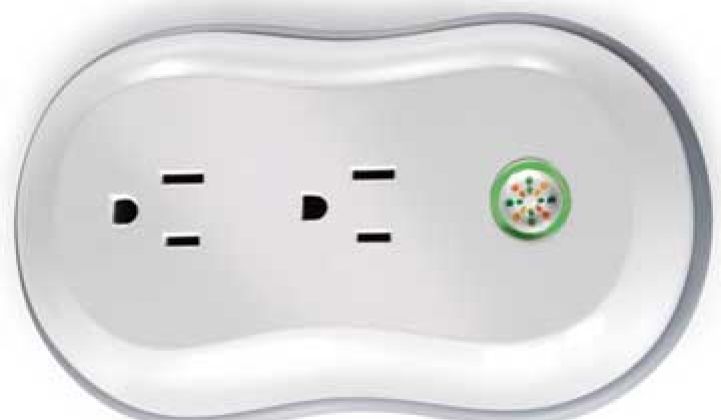For a smart plug, ThinkEco’s Modlet is a bit of a celebrity. It has rubbed elbows with the likes of Martha Stewart and the team at NBC’s Today Show.
But for the New York-based company, the Modlet might be just the first act. The company is currently selling the Modlet at Best Buy and directly to customers in its own online storefront and has done a pilot with Consolidated Edison to control window AC units during summer peak.
ThinkEco will continue to work with Con Edison and other utilities, but it is also going to start working with original equipment manufacturers and then release a software-as-a-service product in the first half of 2012.
“The idea is for us to find partners that need a plug-load solution,” said Jun Shimada, president and CTO of ThinkEco.
For companies, built-in solutions for large office equipment could save significant amounts of money. More than 25 percent of electricity that companies use goes to plug loads, a figure that is growing. Many companies have instituted behavior programs to increase energy efficiency, but what if you could take the workers out of part of the equation?
ThinkEco is targeting computers, printers, copiers and water coolers to do just that. The company’s research with more than 125 companies found that they could turn appliances off about 50 percent of the time, said Shimada.
The move to work with OEMs and to offer software as a service is a trend growing among residential energy management companies. Other companies like People Power are also looking to offer an embedded solution, while EnergyHub also launched a software-as-a-service offering last year and Tendril is building partnerships with OEMs, such as Whirlpool.
Although ThinkEco is gunning to work with commercial markets, it is actually still proving the value of its Modlet in utility studies. In the Con Edison pilot, there was an average 26 percent energy savings across some 500 window air conditioners during peak events last summer, although further data will not be released until this summer.
While ThinkEco finalizes its entry into the commercial market, just proving its Modlets for window ACs could be a successful business model in utility channels. Central AC is still king in most areas of the country, but window or wall units make up 58 percent of air conditioning in the U.S., according to the U.S. Energy Information Administration.
The figures in other regions of the U.S. are far lower, with the Midwest and West having about a quarter of their air conditioning served by window or wall units. The figure is only about 16 percent for the south.
New York City is unique in its penetration of window AC units. In many other areas of the country, the prevalence of these units is clearly related to income. About a third of households below the poverty line have room AC, rather than central, compared to about 15 percent of those that have an income above $100,000, according to EIA. For utilities looking to provide demand response programs that cut across the socioeconomic strata of their territory, a solution like Modlet could help them achieve that. “One thing that’s good for us from retail is it forces us to make it very easy to use,” said Shimada. “The non-tech-savvy still need to be served.”
From a commercial standpoint, the product could also be a low-cost option for small and medium-sized businesses that can't afford to upgrade large pieces of equipment but want some visibility into large plug loads. ThinkEco is currently doing a pilot with NYSERDA to examine that opportunity.
In 2012, ThinkEco sees the utility and enterprise markets, rather than individual consumers, as the primary forces that will be driving the firm's business. “There’s a little bit of wait-and-see with retail,” said Shimada. “But our intention is to keep all three going.”



